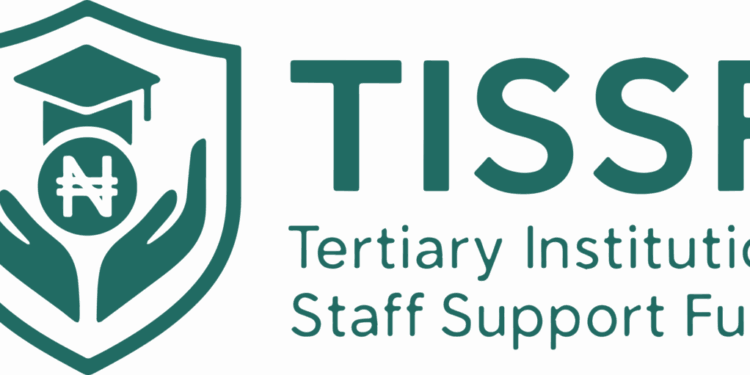The Federal Government’s creation of the Tertiary Institutions Staff Support Fund (TISSF) is presented as a welfare initiative to cushion workers’ hardship in Nigeria’s tertiary institutions. Introduced by the Minister of Education, Dr Tunji Alausa, the scheme promises loans to academic and non-academic staff, much like other welfare packages found in the public and private sectors. On the surface, it appears a welcome relief. In reality, it is anything but a relief.
The problem is not that government has designed a loan scheme. The problem is what it represents. To the Academic Staff Union of Universities (ASUU) and many stakeholders, the TISSF looks less like support and more like a diversion – a ploy to deflect attention from government’s long-standing obligations to its employees. These obligations are neither privileges nor acts of charity; they are contractual commitments rooted in collective bargaining and reinforced by years of negotiation.
Since 1992, ASUU has been involved in recurring clashes with successive governments over underfunding, poor infrastructure, inadequate research support, and unsatisfactory lecturer welfare. These disputes culminated in the landmark 2009 ASUU/FG agreement. Negotiated under the leadership of Deacon Gamaliel Onosode for the government and Abdullahi Sule-Kano for ASUU, the agreement covered revitalisation funding, Earned Academic Allowances, Excess Workload Allowances, salary shortfalls, and the need for regular visitation panels. It was heralded as a turning point for higher education in Nigeria. Sixteen years later, most of its provisions remain unimplemented.
Rather than fulfilling these obligations, successive governments have chosen piecemeal responses—ad hoc committees, fresh memoranda of understanding, and stopgap interventions. Each cycle of broken promises has deepened mistrust. By 2022, that mistrust became entrenched when the government withheld the salaries of lecturers for seven and a half months during a protracted strike. To university workers, this act was punitive and a clear message that agreements could be casually disregarded.
It is against this backdrop that ASUU’s rejection of the TISSF should be understood. The union has described it as a “poisoned chalice” and rightly so. To lecturers, already weighed down by arrears of salaries, unpaid promotion arrears dating back years, balances of Earned Academic Allowances and Excess Workload Allowances running into billions, and unfulfilled wage awards, a loan scheme is not a relief but an insult. As ASUU’s president, Professor Christopher Piwuna, put it, “disturbing culture of broken promises and delay tactics.”
In our opinion, salaries, allowances, and arrears are not acts of generosity; they are rights enshrined in government and employee agreements. When the government signs MoUs and MoAs, those documents carry the force of trust, moral responsibility, and contractual obligation. To undermine them by offering loans in place of payments due is to erode the sanctity of collective bargaining. Worse still, it sets a dangerous precedent: if government can replace obligations with debt today, what assurance is there that future negotiated settlements will be respected?
The implications go beyond university staff. When the government treats agreements lightly, it sends a dangerous message across the entire public service—that collective bargaining is optional, that rights can be downgraded to privileges, and that obligations can be substituted with palliatives. This not only undermines industrial harmony but also discourages a culture of trust in governance.
The pathway is clear- if the government is sincere about supporting its staff and stabilising Nigeria’s tertiary education sector, it should first settle outstanding arrears, withheld salaries, and promotion backlogs. Second, it should implement long-overdue salary adjustments and ensure that staff remuneration reflects economic realities. Third, it should honour the recommendations of the various committees and panels – from the Onosode and Munzali Jibril reports to the more recent Nimi Briggs and Yayale Ahmed committees. Each of these reports provides a roadmap for revitalisation that government itself commissioned.
Beyond meeting these obligations, the government must confront the structural crises facing higher education. Chronic underfunding has left universities with dilapidated infrastructure, outdated libraries, overcrowded classrooms, and poorly equipped laboratories. Research output is stifled by a lack of grants, and brain drain continues to erode the system’s capacity as lecturers seek better conditions abroad. These are not challenges that loans to staff can solve. They require sincerity, long-term investment, and respect for agreements already on the table.
At best, the TISSF is a smokescreen. At worst, it is a calculated attempt to replace rights with debt. What the education sector needs is not cosmetic palliatives but sincerity of purpose. Government must return to the basics: fulfill agreements, pay what is owed, and invest meaningfully in infrastructure, research, and human capital. Anything less will only deepen the crisis and further strain the already fragile trust between government and academia.
If Nigeria is to build a knowledge economy capable of driving national development, then the government must treat its tertiary education sector with the seriousness it deserves. Lecturers and other university staff are not beggars to be pacified with loans. They are nation-builders whose welfare, morale, and professional integrity directly shape the quality of our human capital. To ignore this fact is to gamble recklessly with the country’s future.
We believe that the government’s choice is clear. It can continue to offer distractions like the TISSF or rise to its responsibility by honouring agreements, meeting obligations, and investing in the sector.



